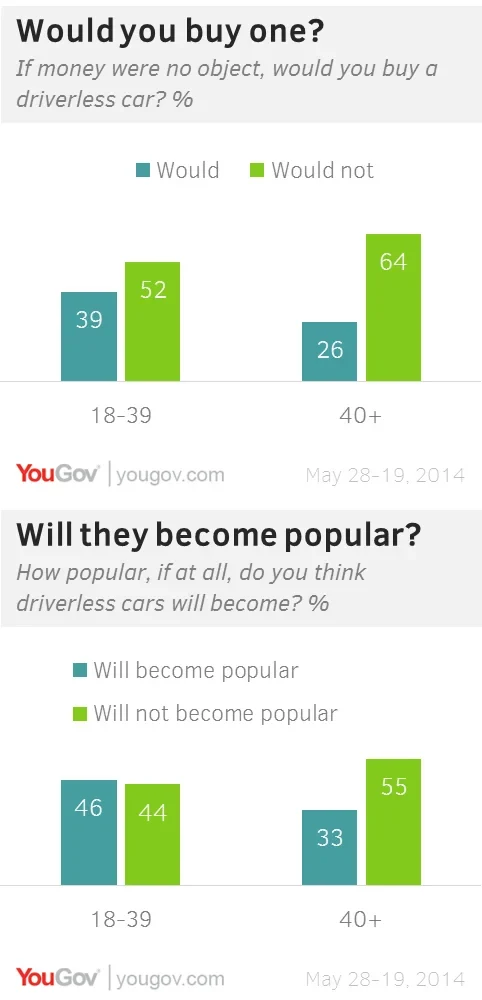4 in 10 under-40s would be interested in having a driverless car, though British people tend to think they won't catch on
When Google first experimented with driverless cars, they added sensors and a computer to a Toyota Prius and allowed humans to override it if they wanted to. Afterwards, however, they said they “saw stuff that made us a little nervous”. Now, they say completely driverless cars – with no steering wheel or pedals – will be much safer. As one commentator put it: “Humans might be the one problem Google can’t solve”.

A new YouGov survey finds a mixed public reception for driverless cars.
Overall, 60% say they would not buy a driverless car, even if money were no object. Though a significant minority (30%) say they would, and the figure is much higher among 18-39 year olds (39%) than over-40s (26%).
Future tech
Previously, YouGov found that 60% also said they would not buy a smartwatch if money were no object, a project Google are also now thought to be working on.
But while people did tend to think smartwatches would catch on, by 46-34%, they are not fully convinced driverless cars will do the same. 51% predict they will not become popular, while 37% say they will. However, younger adults once again provide more reason for optimism about the future of the technology. Those between the ages of 25 and 39 tend to believe driverless cars will catch on by 48-42%.
Google plans to build a fleet of 200 experimental electronic driverless cars (pictured above). The two-seat vehicle will, to begin with, be limited to 25mph, and will come with plug-in controls that the company hope to remove when confidence grows. They claim the cars could revolutionise transport, by making roads safer, eliminating crashes, and decreasing congestion and pollution.







